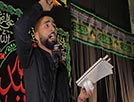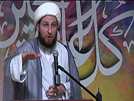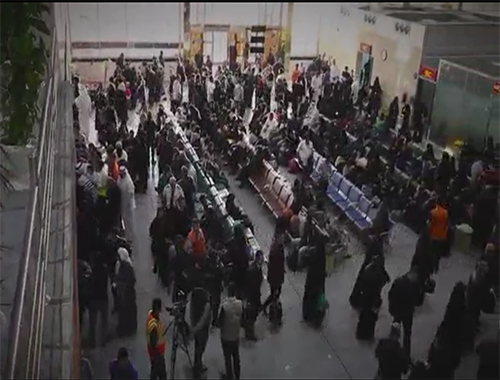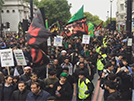12-Society In Islam
- Details
- Hits: 3752
12-SOCIETY IN ISLAM
Question:
Does Islamic society have a specific structure?
Answer:
The various units of society adapt themselves to each other according to how a particular society is governed. Sometimes those governing society make allowances for the basic instincts of man and at other times they ignore them.
Since Islam is the religion which responds to the innate nature of man, it takes into account this inherent disposition in all its laws and so promotes what is good and forbids what is bad. If we look at society at the present time, we notice the following elements and phenomena:
1. The family.
2. People who work in trade or business.
3. The school and education.
4. Worship.
5. Religious festivals.
6. Government employment.
7. Social gatherings like the meeting together of friends, weddings, travelling together, funeral gatherings and so on.
8. The army.
9. Relations between the government and the people.
10. Temporary sharecropping.
1-The family:
Each member of a family has his or her particular responsibilities, so a husband has his responsibilities and a wife hers and both of them have responsibilities towards the children, just as the children have towards their parents. Taking the word family to comprise also relatives, then they all have responsibilities and duties towards one another which are not confined to particular circumstances or occasions but are general in application.
Some matters regarding the family (according to the five principles into which human actions fall) are obligatory, some recommended, some forbidden and some are disapproved of and some permitted. For example Islam has set out rules regarding getting married: the obligation on the husband to provide for his family, the duty of the wife to obey her husband, correct behaviour within the house, the way to bring up children, what names to give them and other matters concerning them.
2- Business and trade:
Islam has clarified the conditions and rules relating to running a business whether it is a matter concerning the customer, or between two parties regarding a purchase, mortgage, making out a contract for renting and so on.
3-Education:
Islam has a particular view regarding education, culture, the conditions for becoming a teacher, how a student should behave, the characteristics of an Islamic education and what should be its aims. Evidence for Islam’s concern for education is that the “Second Martyr”1 (al-Shahid al-Thani), may God be pleased with him, wrote a book on this subject entitled, “Munyat al-murid fi adab al-mufid wa-’l-mustafid” 2.
4-Worship:
Islam has set out specific laws regarding worship, has clarified how prayers in congregation are to be carried out and what kind of place is suitable for such prayers. It has also detailed the characteristics of a mosque and the conditions for being an imam and has stressed the obligation of the believers to interrelate affectionately with one another and with the imam, and so on.
5-Religious festivals:
Joyful festivals and occasions for grief, the Hajj, visits to the shrines of the Holy Prophet and the impeccable Imams: all have a special place in Islam and each occasion has its particular character, rites and special spiritual benefits for which scholars have compiled numerous works as, for instance, the Hajj of the Jawahir[52], Kamil al-ziyarat[53] and the Mazar of the Bihar[54].
6-Employment in government service:
I am referring here to the social aspects of such employment, that is to say what is entailed in holding a post close to the government and also the qualities that a judge should possess and those who work under him as well as any specific employment that directly affects the well-being of society.
7-Social gatherings:
Islam gives great importance to these from the point of view of correct procedure: how best these should be conducted and everything appertaining to them. One of the scholars has even written a specific treatise about this called, “The book of social relations” (Kitab al-‘Ishra)[55].
8-Army:
From the social aspects, both when in camp and on the move: how the army should conduct itself, what is involved in the army’s obeying its commander-in chief and how such a commander must treat his men. Islam deals with all these points and a special section in jurisprudence has been allocated to them called “The Book of Jihad”[56].
9-Temporary sharecropping:
This has its own procedures, conditions and characteristics such as how contracts between the sharecroppers are retained, the forms of the sharecropping contract, the share of the cultivator in the farm produce, how he is employed, his rights and the rights of the owner of the farm, and so on.
10-Finally, Islam has clarified the rights of the ruler with regard to the people, the rights of the people with regard to the ruler and the relationship which should exist between both of them.
In short, what is called today “Sociology” has already received exhaustive treatment in Islam. Society according to Islam should be characterized by the following features:-
1. The promotion of a healthy state of affairs in every aspect of life.
2. Total mutual trust throughout society.
3. The greatest degree of tranquillity and calm.
This is thanks to the vitality and reasonableness of the programme which Islam has drawn up in detail for human society and which has to be put into practice if what is desired is a life of well-being and happiness.











